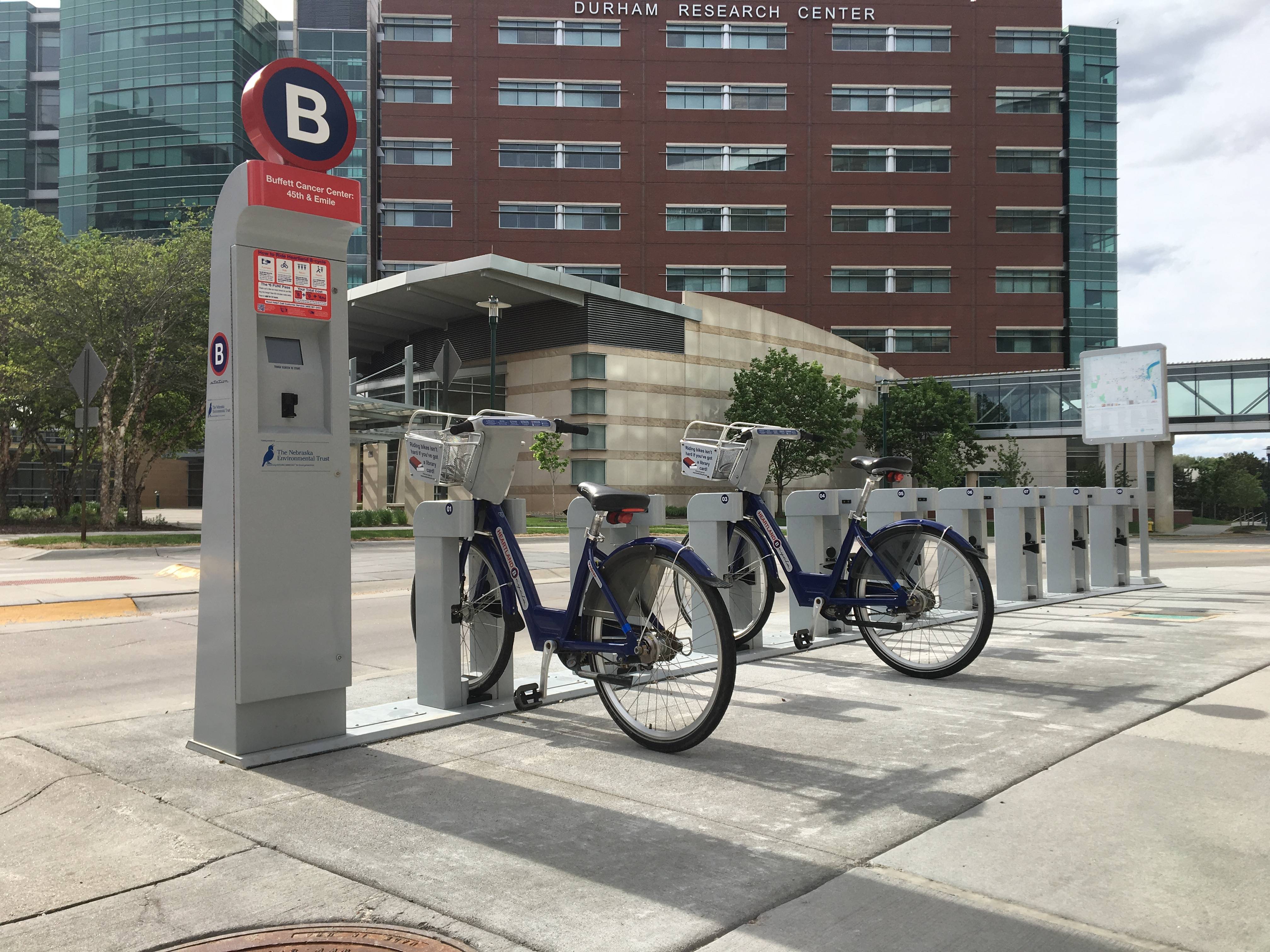Transportation
GOAL: 35% of employee commutes are walk, bike, transit, carpool, or work from home.
Goal update
Baseline: 12.7%
November 2022: 40%
2030 Goal: 35%
The Medical Center’s approximately 10,000 students and employees at the 42nd and Dewey campus commute to work using a variety of methods. Mode split is defined as the percentage of trips people make to work using a mode of transportation other than driving alone in a vehicle (in a typical week), which includes bicycling, walking, working from home, carpooling and riding buses. In 2010, 12.7% of employees walked, biked, bused, and carpooled to work rather than driving a single-occupancy vehicle. This proportion ranked lower than the average for Omaha and for the United States.
TravelSmart.
TravelSmart, a program aimed to increase participation in more sustainable modes of transportation, was launched in June 2015. TravelSmart continues to be a fundamental program to increase transit ridership, carpooling, biking, and walking. The Metropolitan Area Planning Agency recognized the Medical Center, for its TravelSmart efforts toward innovative and sustainable transportation solutions, with the Regional Service Award in 2018.
In 2017, the Medical Center surpassed its original goal of a 20% mode split six years ahead of schedule. The goal was revised to 35% mode split by 2030. At the end of 2022, the Med Center surpassed their 2030 goal, achieving a 40% mode split. The Med Center is currently reevaluating their transportation methods to create a new 2030 goal.
Recent Efforts
Electric Vehicle (EV) Charging Stations.
Two stations (four stalls) of EV charging capacity were added.
- 1 station, 2 stalls in Lot 34 on Emile between Shackelford Hall and the Central Utility Plant
- 1 station, 2 stalls in Lot 21 by the entrance to the middle level of the Lauritzen Outpatient Center
B-cycle Stations.
Six Heartland B-Cycle stations were constructed across the Medical Center campus as part of the Metro area’s bike share program, facilitating an increased use of active transit by Medical Center employees and the public.

Upcoming Projects
ORBT (Omaha’s Rapid Bus Transit).
The Medical Center continues to work with Metro Transit as Omaha’s Rapid Bus Transit (ORBT) includes a station that serves the campus. ORBT runs on Dodge Street arriving at stations every ten minutes during peak times and making fewer stops than traditional buses, which results in faster travel for students and colleagues.
Outreach.
TravelSmart regularly provides information to colleagues and students on sustainable/active transportation. The Med Center is continuously exploring new ways to match carpoolers, hosting events to promote active transportation, and finding new ways to reach potential bus riders.